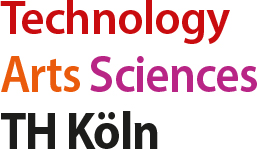Slow Feature Analysis (SFA)
Description
Slow Feature Analysis (SFA) is a technique invented by Laurenz Wiskott which finds unsupervisedly features in complex timeseries.
The guidance principle of SFA is to find such combinations of the original inputs which vary slowly in time. The application areas of SFA range from visual pattern recognition over general classification up to
 unsupervised driving force detection in time series.
unsupervised driving force detection in time series.
Within the project SFA @ CIOP (as part of the SOMA project), we have currently the following achievements:
- We used SFA for the first time for gesture recognition [Koch10a] and achieved results comparable to other state-of-the-art gesture classifiers.
- In order to do so, we expanded the original open-source, MATLAB-based SFA-Toolkit (sfa-tk V1.0) by Pietro Berkes to a new version sfa-tk V2.6 which is available for download. The extensions of V2.6 are: more robust SVD-based SFA (see [Kon09b] for details), support for classification, support for cross validation, Gaussian classifier, some classification demos and sample data (UCI, gesture).
- If the number of training samples is small, the original SFA classification algorithm will fail. We extended the SFA classification algorithm of Pietro Berkes by a parametric bootstrap algorithm which makes SFA classification applicable for small numbers of examples. This extension is available in sfa-tk V2.8 for download.
- In a driving-force experiment we showed that SFA can detect signals slower than the driving force and that SFA may ‘switch concepts’ in a certain way which has some parallels to human perception [Kon09a][KonK10a][KonK10b].
- In 2012 a group of students around Martin Zaefferer successfully ported sfa-tk V2.8 to R: The R-package rSFA is available for download on CRAN. This allows to use SFA for unsupervised feature generation in data mining tasks and to integrate it as a general preprocessing tool in the SOMA project and the TDMR framework.
In the near future, we plan to pursue these further goals with SFA @ CIOP:
- Improve gesture classification for the difficult task of recognizing gestures of unseen persons and towards even fewer training examples to learn new gestures.
- Currently students are working on porting the MATLAB-based SFA-toolkit and the gesture recognition engine to the iPhone environment to make the gesture recognition available as iPhone App.
People
Wolfgang Konen, Kristine Hein, Patrick Koch
Publications
Der SFA-Algorithmus für Klassifikation Forschungsbericht Research Center CIOP (Computational Intelligence, Optimization and Data Mining) Cologne University of Applied Science, Faculty of Computer Science and Engineering Science, Nr. 08/11, 2011, ISSN: 2191-365X. SFA classification with few training data: Improvements with parametric bootstrap Forschungsbericht Research Center CIOP (Computational Intelligence, Optimization and Data Mining) Cologne University of Applied Science, Faculty of Computer Science and Engineering Science, Nr. 09/11, 2011, ISSN: 2191-365X. The slowness principle: SFA can detect different slow components in nonstationary time series Artikel In: International Journal of Innovative Computing and Applications (IJICA), Bd. 3, Nr. 1, S. 3–10, 2011. Gesture Recognition on Few Training Data using Slow Feature Analysis and Parametric Bootstrap Proceedings Article In: 2010 International Joint Conference on Neural Networks, 2010. Gestenerkennung mit Slow Feature Analysis (SFA) - Klassifizierung von beschleunigungsbasierten 3Đ-Gesten des Wii-Controllers Forschungsbericht FH Köln 2010. How slow is slow? SFA detects signals that are slower than the driving force Proceedings Article In: Filipic, B.; Silc, J. (Hrsg.): Proc. 4th Int. Conf. on Bioinspired Optimization Methods and their Applications, BIOMA, Ljubljana, Slovenia, 2010. Lernende Klassifikation beschleunigungsbasierter 3D-Gesten des Wii-Controllers Forschungsbericht Research Center CIOP (Computational Intelligence, Optimization and Data Mining) Cologne University of Applied Science, Faculty of Computer Scienc and Engineering Science, Nr. 01-10, 2010, ISSN: 2191-365X. How slow is slow? SFA detects signals that are slower than the driving force Forschungsbericht Cologne University of Applied Sciences Nr. 05/09, 2009, (e-print published at http://arxiv.org/abs/0911.4397). On the numeric stability of the SFA implementation sfa-tk Forschungsbericht Cologne University of Applied Sciences Nr. 05/10, 2009, (e-print published at http://arxiv.org/abs/0912.1064).2011
2010
2009

